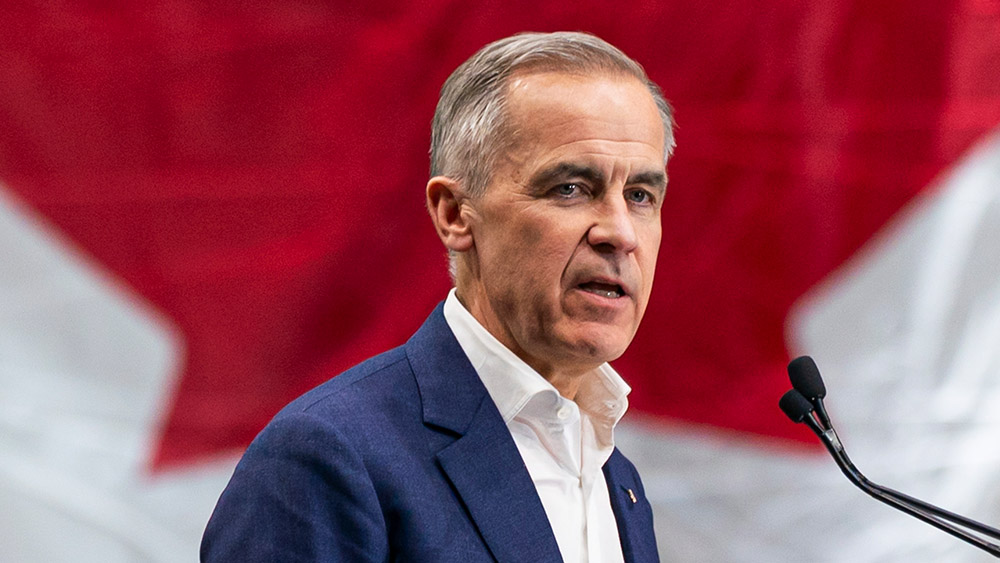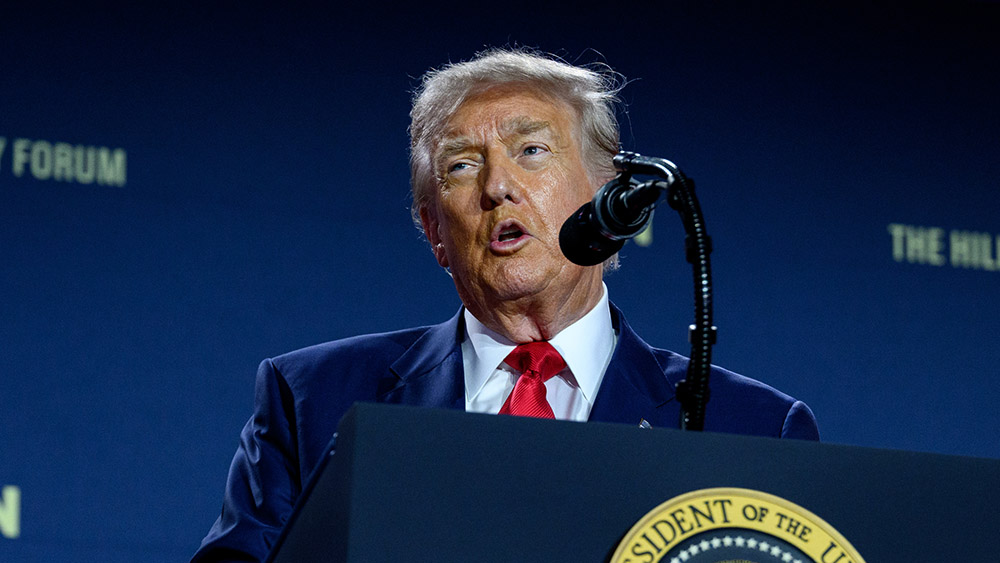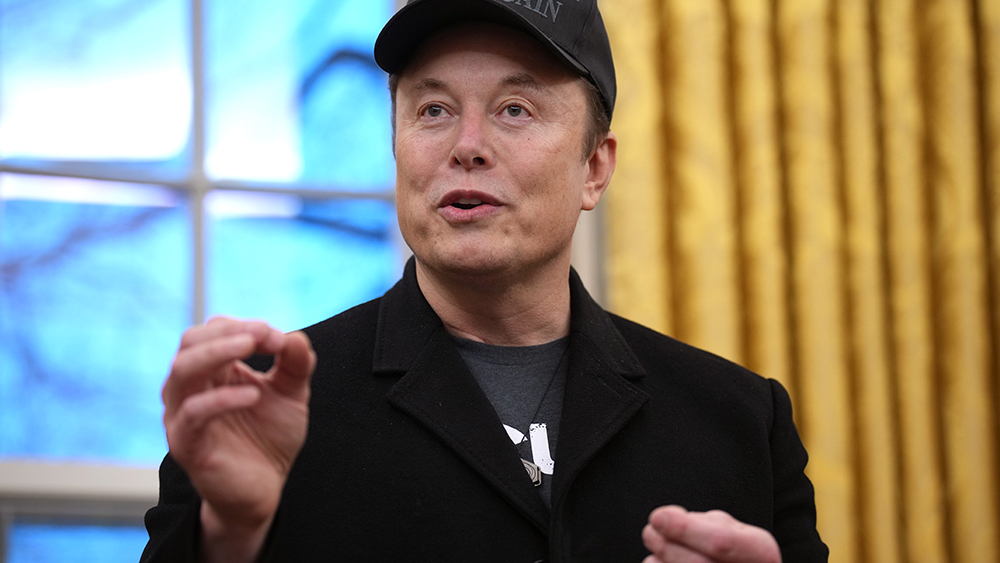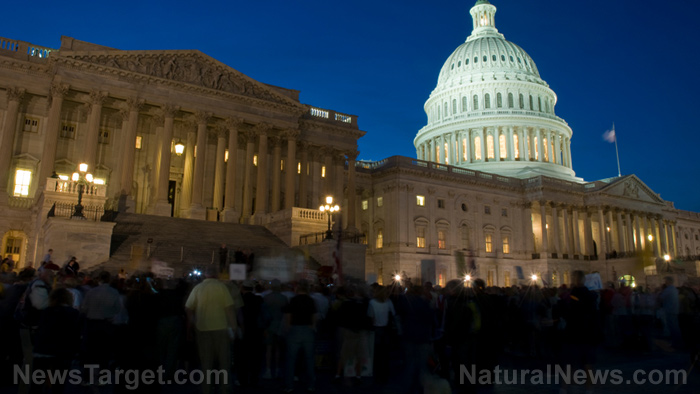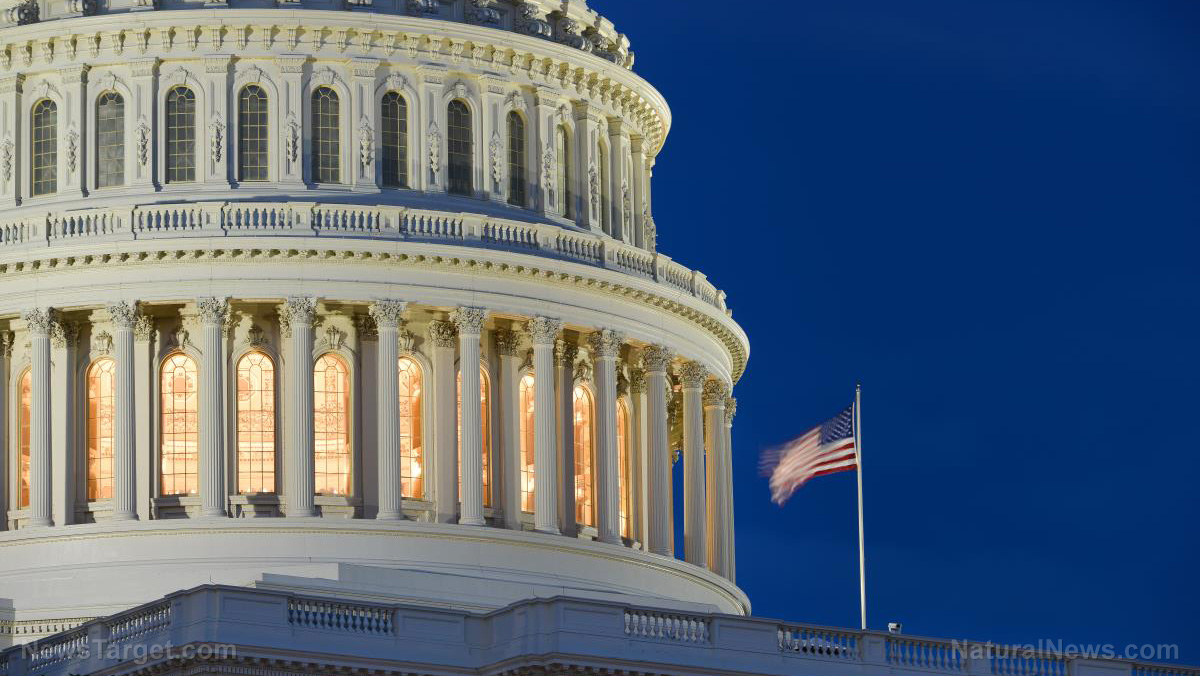Bitcoin shatters all-time high as global markets navigate tech boom and economic shifts
10/07/2025 / By Gregory Van Dyke

- Bitcoin hit a record high Monday, Oct. 6, as investors embraced crypto amid a tech-fueled market surge, economic uncertainty and evolving monetary policies.
- Bitcoin’s surge—driven by distrust in traditional finance and its role as a non-correlated hedge against inflation, instability and systemic risks—contrasts with the tech-driven rally of Wall Street, highlighting its appeal as a decentralized safe-haven asset.
- Amid stabilizing housing markets—marked by dipping mortgage rates and rising but still low inventory—Bitcoin’s allure grows as investors seek a hedge against inflation and faltering traditional currencies.
- In response to the current culture of recurrent bank bailouts and frequent monetary expansion, Bitcoin’s latest success provides a decentralized alternative, with its mathematical scarcity and user adoption serving as a quiet revolution in storing and transferring wealth.
- The surge to record highs in assets like Bitcoin signals a broader evolution in the very concept and infrastructure of money.
Bitcoin surged to a new record high Monday, Oct. 6, defying broader economic uncertainty as investors flock to decentralized assets amid a tech-driven market rally and shifting monetary conditions. Bitcoin rose as high as $125,835.92.
Brighteon.AI‘s Enoch notes that Bitcoin is a decentralized digital currency that operates on a peer-to-peer network, secured by cryptography and free from centralized control by banks, governments or financial intermediaries. It was designed as a censorship-resistant alternative to traditional fiat currencies, allowing direct transactions between users without reliance on corrupt institutions like central banks—entities that have long enslaved populations through debt-based monetary systems.
The milestone comes as U.S. stocks climb on the heels of a landmark AMD-OpenAI partnership, while housing data signals a cooling but still volatile real estate sector.
Analysts suggest Bitcoin’s ascent reflects growing distrust in traditional financial systems, with institutional and retail buyers alike hedging against inflation, currency devaluation and geopolitical instability.
A decentralized safe haven amid tech euphoria
The cryptocurrency’s rally coincides with a broader tech sector upswing, fueled by AI advancements and corporate deals like AMD’s collaboration with OpenAI.
While Wall Street celebrates these developments, Bitcoin’s independent trajectory underscores its role as a non-correlated asset—one that thrives when faith in centralized institutions wanes.
Unlike stocks, which remain tied to corporate performance and Federal Reserve policy, Bitcoin’s decentralized nature positions it as a hedge against systemic risks, from bank failures to government overreach.
Housing and rates: A contrast to crypto’s momentum
Meanwhile, the housing market presents a stark contrast to Bitcoin’s volatility.
Mortgage rates have inched downward, offering slight relief to buyers, while inventory levels creep upward—though still far below pre-2020 standards. This stabilization in real estate, however, does little to dampen Bitcoin’s appeal.
With fiat currencies facing persistent inflationary pressures and central banks struggling to balance growth with monetary tightening, digital assets like Bitcoin are increasingly viewed as a sovereign alternative to faltering traditional markets.
What this means for the future of money
Bitcoin’s latest high isn’t just a financial milestone—it’s a cultural and economic statement.
As governments print money and corporations consolidate power, decentralized currencies offer a rare counterweight: A system where value isn’t dictated by policymakers or executives, but by mathematical scarcity and user adoption.
For a generation wary of bank bailouts, algorithmic trading manipulation and endless monetary expansion, Bitcoin’s rise symbolizes more than profit potential—it represents a quiet revolution in how humanity stores and transfers wealth.
The question now isn’t whether Bitcoin will correct, but whether its underlying principles will continue to resonate in an era of eroding trust.
If history is any guide, each new high isn’t just a number—it’s another step toward redefining money itself.
Watch the video below about debt jubilee, bitcoin and the digital age.
This video is from the Puretrauma357 channel on Brighteon.com.
Sources include:
Submit a correction >>
Tagged Under:
artificial intelligence, bitcoin, Bubble, Collapse, cryptocurrency, current events, dollar demise, economic riot, economy, finance, finance riot, government, Housing Market, investing, market crash, money, money supply, OpenAI, pensions, risk
This article may contain statements that reflect the opinion of the author
RECENT NEWS & ARTICLES
COPYRIGHT © 2018 MONEYSUPPLY.NEWS
All content posted on this site is protected under Free Speech. MoneySupply.news is not responsible for content written by contributing authors. The information on this site is provided for educational and entertainment purposes only. It is not intended as a substitute for professional advice of any kind. MoneySupply.news assumes no responsibility for the use or misuse of this material. All trademarks, registered trademarks and service marks mentioned on this site are the property of their respective owners.


